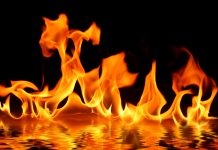With bonfire night approaching, NHS England raises awareness and offers advice to those treating burns and scalds
NHS England reports a significant increase in individuals seeking guidance for burn injuries over the Bonfire Night weekend. According to their statistics, the website experienced an average of 8,208 visits during these two days. In contrast, the website typically receives 3,241 daily visits during the remaining days of the year, as indicated by data from 2021 and 2022.
Seeking advice for burns
The NHS has warned about a sharp increase in individuals seeking guidance on burn-related issues during the Bonfire Night weekend, emphasising the importance of exercising extreme caution when dealing with fireworks.
NHS England has reported that its burns and scalds advice section on the website receives a visitor every 21 seconds over the celebratory weekend. According to their data, this specific section receives an average of 8,208 visits during these two days. The website is typically visited 3,241 times daily during the remainder of the year, based on data from 2021 and 2022.
Safety measures around fireworks
The Royal Society for the Prevention of Accidents (RoSPA) provides guidelines recommending that adults be responsible for organising firework displays, participants should abstain from alcohol consumption, and children and young individuals should be under continuous supervision.
RoSPA also recommends that the safest way to enjoy fireworks is by attending a large public display, as the chances of sustaining injuries are significantly lower than smaller gatherings.
Dame Ruth May, the chief nursing officer for England, emphasised the importance of celebrating safely during Bonfire Night with friends and family. She emphasised the need to be cautious when handling fireworks, fires, and sparklers and stressed the essential role of ensuring children are adequately supervised at all times.
NHS recommendations for the treatment of burns and scalds include:
- Immediately moving the affected person away from the heat source.
- Removing any clothing or jewellery near the burnt skin.
- Cool the burn by running cool or lukewarm water over it for 20 to 30 minutes, avoiding the use of iced water or any creams or greases like butter.
- Keeping the person warm with blankets, avoiding direct contact with the burnt area.
- After the burn has cooled, cover it with cling film or a clean plastic bag.
- Administering pain relief medications, such as paracetamol or ibuprofen, to alleviate pain.
- Elevating the affected area to reduce swelling.














